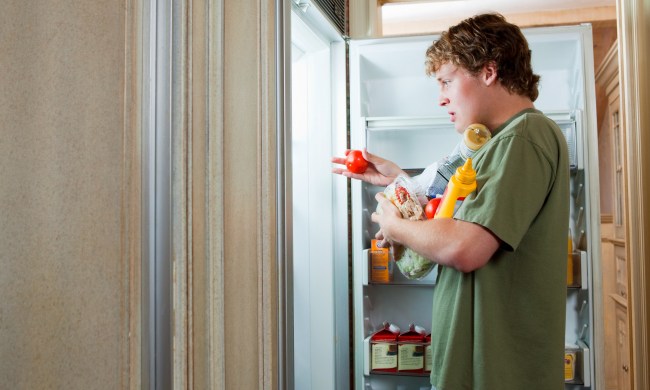You waited so long to bring your baby home. You spent so much time decorating the nursery. From the color of the walls to the style of the furniture, everything has been planned. You’ve been so excited.
You have probably spent a lot of time and effort into choosing the perfect baby blanket. And you have probably collected so much more of these, all of which have now been plopped into storage. Blankets you got from your baby shower, from your parents, from your grandparents, ones you didn’t even put on your registry. All of the blankets.
But can you put them in the crib with your baby? Can your baby even sleep with a blanket when you bring them home? What are you supposed to do with all of those blankets? Now you are wondering at what age can your baby sleep with a blanket. Does it matter?
Well, it does matter. It matters a lot. It is actually extremely dangerous for a baby to sleep with a blanket. There are a lot of things that can go wrong when a soft object and a little one are left alone together.

What could happen
Babies have no control over what they are doing. They can’t tell if something is stuck in their mouth or not. Soft items like blankets, crib bumpers, and stuffed animals should never be left alone with a baby while they are sleeping. You shouldn’t leave your baby unattended with any of these objects while awake, either.
- Take out the crib bumpers
- No blankets of any kind in the crib
- No matter how cute they look, get rid of the stuffed animals
Crib bumpers are weird. Do you think your 1-month-old infant is banging their head against the crib rails? Crib bumpers are mainly for show. While they do look cute and make the crib look more festive, skip them. They will need to be taken out every night. You have enough work to do every day, mama.
Loose blankets are a no. Even if you burrito wrap your baby, they can bust out of that in a minute. Then the blanket is free to cover the baby’s face, get stuck over their head, or get sucked in their mouth.
Those adorable stuffed animals might look precious when you cuddle them with your baby. But again, your baby loves to put everything in their mouth. Fight the urge, resist the temptation. Don’t put any stuffed animals in the crib. Leave those for play time.
The right age
So, what’s the right age, then? All we’ve done is tell you no about everything.
- At least 1 year old
- No ribbons or hanging tassels
- Breathable fabrics are best
- Smaller blankets are key, no large ones
- No higher than their little chest
Yes, you can eventually give your little one a blanket. Be smart about the kind and size of the blanket. Anything that dangles off is a no-go. Again, your baby could accidentally get it in their mouth.
You want to make sure the blanket is in proportion to your baby. Though the big fluffy blankets look cute for pictures, don’t let your baby sleep with that. A smaller blanket the size of your baby is all they need. The more fabric, the higher the chance your baby could get wrapped up in it the wrong way.
When you do give your baby a blanket, make sure the fabric is breathable. Try to find one made with cotton muslin and stay away from polyester.
When you tuck you little one in, the chest is high enough. Never tuck the blanket under their chin or around their shoulders. Under their chubby little arms is perfect.

Other things in the crib
We went over blankets, but when can babies sleep with a stuffed animal? The same rules apply. Wait until your baby is at least 1 year old. Realistically, you shouldn’t have any toys in the crib at all. If you baby has a favorite stuffed animal, wait until after their first birthday to let them sleep with it.
When you tuck your baby in at night, tuck their favorite buddy in with them, under the arms like you would your child.
It’s simply better to clear the crib of any random objects before putting your child to bed. It’s always better to be safe than sorry.
The reason to check the crib
What’s all of the fuss over what goes in the crib? Why is everyone so paranoid?
- Suffocation
- SIDS
- Strangulation
- Choking
There are some very scary and life-threatening things that could happen to baby while they sleep when there are unnecessary things in the crib.
You baby could choke on a small piece of a stuffed animal, get stuck in the blanket and suffocate, or get a larger blanket wrapped around their heads.
Sudden Infant Death Syndrome, or SIDS, affects babies under 1 year of age. It is the leading cause of infant death in the United States. It is one of the most devastating ways to lose a child. Do all you can to help prevent it by practicing safe sleep measures.
As much as you want to give your baby a cute blanket to keep them warm, please don’t. They make really good baby wraps if you have to put your baby in something. But some good footed pajamas will do the trick. It’s OK, mama. You’ve been through a lot to bring your baby home, we want to take some of that first-year stress away.



